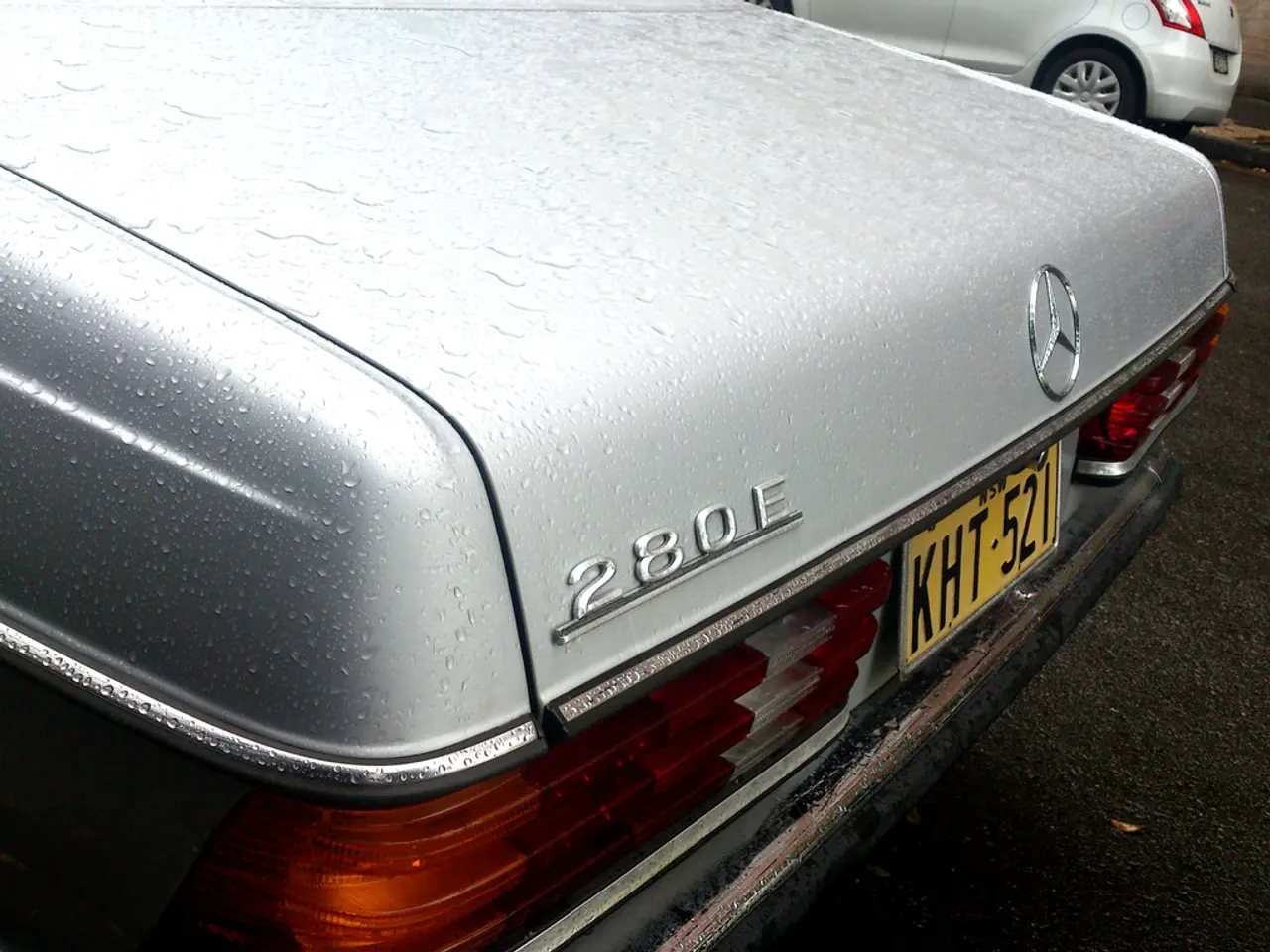Car now experiences rainfall: Mercedes in the midst of precipitation
Mercedes-Benz Suffers Major Profit Drop in 2025
Mercedes-Benz, one of the world's leading luxury car manufacturers, has reported a significant decline in profits for the first half of 2025. The consolidated result fell by 55.8%, from 6.1 billion euros in the previous year to just 2.7 billion euros.
The German automaker attributes this poor performance to several factors, including tariffs, lower sales volumes, and expenses for efficiency measures. Mercedes-Benz joins Volkswagen and Audi as the third major automaker to experience significant declines in profits.
In 2024, Mercedes-Benz experienced a 28% decrease in profits, with the consolidated result falling to 10.4 billion euros compared to 2023. The adjusted profit margin for the passenger car division is expected to be between 4% and 6% in 2025, down from 8.1% in the already weak previous year.
The trend of declining profits for these automakers has been ongoing for several years.
US Tariffs and the North American Market
Higher tariffs imposed by the US administration have reduced profit margins and are estimated to have cut €360 million from Mercedes-Benz's bottom line in 2025. These tariffs have significantly disrupted costs and competitiveness in the lucrative North American market, with North American revenue falling nearly 13%.
China Market Slowdown
China, traditionally Mercedes-Benz's biggest market, saw a steep sales decline—about a 20% drop year-on-year in Q2 and even sharper declines of over 30% in some reports. This sales slump in China significantly pressures overall revenue.
Lagging Electric Vehicle Adoption
Mercedes-Benz's heavy reliance on internal combustion engine vehicles and comparatively slower transition to electric vehicles (EVs) has made it vulnerable. While EV sales grew to 21% of total sales in Q2 2025 (up from 18% in 2024), this is still below competitors like Tesla, which are pushing over 30%.
Cost-cutting and Strategic Adjustment
In response, Mercedes-Benz is focusing more on high-margin luxury models to offset volume declines and pursuing strict cost control under its "Next Level Performance" plan. However, some one-off costs related to this have further dented profits in 2025.
Despite the profit slump, Mercedes-Benz maintains healthy cash flow and liquidity, enabling ongoing investment in future products and technologies. However, heavy external challenges from global trade policies and competitive dynamics in China are key near-term hurdles.
Impact on the German Automotive Industry
The declines in profits for Mercedes-Benz, Volkswagen, and Audi are a concern for the German automotive industry. These declines may also affect consumer confidence in the industry. Moreover, the declines in profits may impact the ability to invest in research and development, potentially leading to job losses.
[1] Reuters: Mercedes-Benz profits plummet in Q2
[2] Bloomberg: Mercedes-Benz Profit Slides as Tariffs, China Slowdown Hit Sales
[3] CNN Business: Mercedes-Benz profits plummet amid US tariffs and China slowdown
[4] Autocar: Mercedes-Benz profits hit by tariffs and China slowdown
- The poor performance of Mercedes-Benz, a leading luxury car manufacturer, is not limited to the company alone as higher tariffs and a slowdown in the Chinese market have also impacted the profits of the global automotive industry.
- In response to the declining profits, Mercedes-Benz, like other major automakers, is focusing on high-margin luxury models, cost-cutting measures, and increased investment in electric vehicles to stay competitive in the industries of finance, transportation, and the automotive sector.




